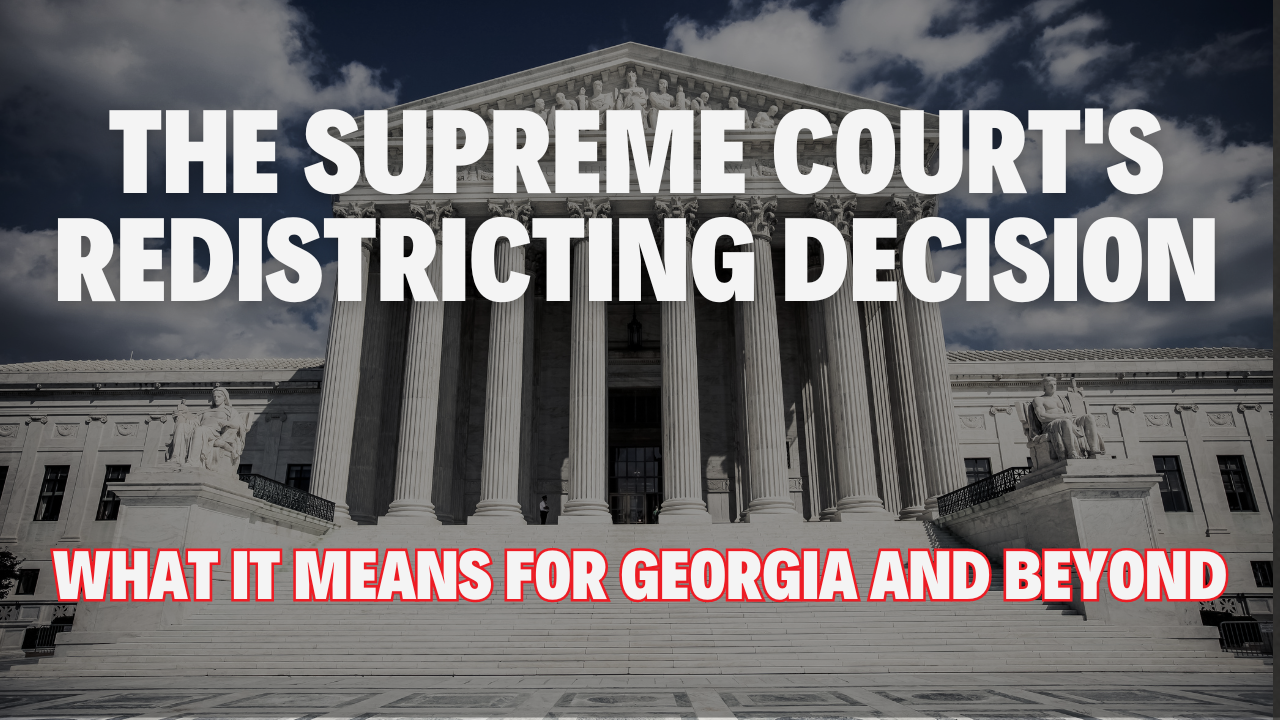The Supreme Court's Redistricting Decision: What It Means for Georgia and Beyond

Introduction
In a recent landmark decision, the U.S. Supreme Court rejected Alabama's attempt to uphold a Republican-backed political map that safeguarded only one majority-Black district. This ruling has immediate implications for Alabama and casts a long shadow over Georgia, where a similar redistricting battle is unfolding.
Contextual Overview
Redistricting, the process of redrawing electoral district boundaries, is a powerful tool that can shape the political landscape for years to come. When done with partisan intent, it can lead to gerrymandering, where district lines are manipulated to favor one party over another. The Supreme Court's decision in the Alabama case has brought this issue to the forefront, especially in states like Georgia, where accusations of racial gerrymandering have been rampant.
Civil Rights Implications
The heart of the Alabama case was the dilution of Black voting power. The Supreme Court emphasized that such dilution is unconstitutional by reaffirming a pivotal civil rights law. This decision is not just a win for Alabama's Black voters but also sets a significant precedent for other states grappling with similar issues.
For Georgia, this ruling could be a game-changer. The state's 2021 redistricting has faced criticism for allegedly diluting Black voting power, especially in areas like northern metro Atlanta. With the Supreme Court's stance clear, Georgia's redistricting battle might see a shift in momentum.
Georgia's Redistricting Controversy
The implications of gerrymandering in Georgia became evident in the 2022 elections. Following the controversial redistricting, Republicans secured another seat in the state's congressional delegation. This shift in power dynamics underscores the profound impact that redistricting can have on electoral outcomes.
Tangible Impact on Political Landscape
The real-world consequences of gerrymandering in Georgia can be best illustrated by the choices made by its politicians. Take, for instance, Rep. Lucy McBath. A Democrat from the 6th District, McBath chose to run in a neighboring, more left-leaning district rather than seek reelection in her original, now gerrymandered, district. Her decision paid off, and she secured a win, highlighting the tangible effects of redistricting on political strategies and outcomes.
Potential Redrawing and Political Maneuvering
Given the Supreme Court's decision and the ongoing legal challenges in Georgia, there's a palpable possibility that Georgia might have to redraw its district lines. This potential overhaul is prompting politicians to recalibrate their strategies. Democrats, like Rep. McBath, are already positioning themselves to compete in districts that were once deemed safe for the GOP. This maneuvering indicates a potentially significant political shift on the horizon.
Broader Implications
While Georgia is currently in the spotlight, the outcome of its redistricting challenge could have ripple effects across the country. A precedent set here could influence redistricting battles in other states, emphasizing the importance of fair and equitable redrawing that respects the voting power of all communities.
Furthermore, this situation underscores the pressing need for transparent, non-partisan processes in redistricting. Every citizen's vote should hold equal weight, and gerrymandering, whether based on race or party affiliation, undermines this democratic principle.
In Conclusion
The U.S. Supreme Court's decision in the Alabama redistricting case is a testament to the enduring power of civil rights laws and the importance of fair representation. As Georgia navigates its redistricting controversy, the nation watches closely, understanding that the outcome here could shape the political landscape in many other states for years to come. The fight for fair representation continues, and the stakes have never been higher.